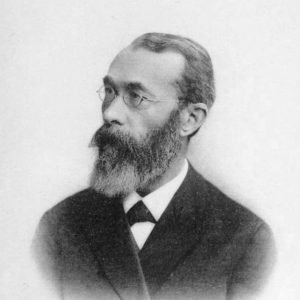History of Psychology
Physiology and Psychophysics
Physiology and Psychophysics
Philosophical questions about the nature of mind and knowledge were matched in the 19th century by physiological investigations of the sensory systems of the human observer. German physiologist Hermann von Helmholtz (1821–1894) measured the speed of the and explored the physiology of hearing and vision. His work indicated that our senses can deceive us and are not a mirror of the external world. Such work showed that even though the human senses were fallible, the mind could be measured using the methods of science. In all, it suggested that a science of psychology was feasible.
An important implication of Helmholtz’s work was that there is a psychological reality and a physical reality and that the two are not identical. This was not a new idea; philosophers like John Locke had written extensively on the topic, and in the 19th century, philosophical speculation about the nature of mind became subject to the rigors of science.
The question of the relationship between the mental (experiences of the senses) and the material (external reality) was investigated by a number of German researchers including Ernst Weber and Gustav Fechner. Their work was called , and it introduced methods for measuring the relationship between physical stimuli and human perception that would serve as the basis for the new science of psychology (Fancher & Rutherford, 2011[1]).

The formal development of modern psychology is usually credited to the work of German physician, physiologist, and philosopher Wilhelm Wundt (1832–1920). Wundt helped to establish the field of experimental psychology by serving as a strong promoter of the idea that psychology could be an experimental field and by providing classes, textbooks, and a laboratory for training students. In 1875, he joined the faculty at the University of Leipzig and quickly began to make plans for the creation of a program of experimental psychology. In 1879, he complemented his lectures on experimental psychology with a laboratory experience: an event that has served as the popular date for the establishment of the science of psychology.
The response to the new science was immediate and global. Wundt attracted students from around the world to study the new experimental psychology and work in his lab. Students were trained to offer detailed self-reports of their reactions to various stimuli, a procedure known as . The goal was to identify the elements of . In addition to the study of sensation and perception, research was done on mental chronometry, more commonly known as reaction time. The work of Wundt and his students demonstrated that the mind could be measured and the nature of consciousness could be revealed through scientific means. It was an exciting proposition, and one that found great interest in America. After the opening of Wundt’s lab in 1879, it took just four years for the first psychology laboratory to open in the United States (Benjamin, 2007[2]).
An electro-chemical signal that enables neurons to communicate.
Study of the relationships between physical stimuli and the perception of those stimuli.
A method of focusing on internal processes.
Awareness of ourselves and our environment.

